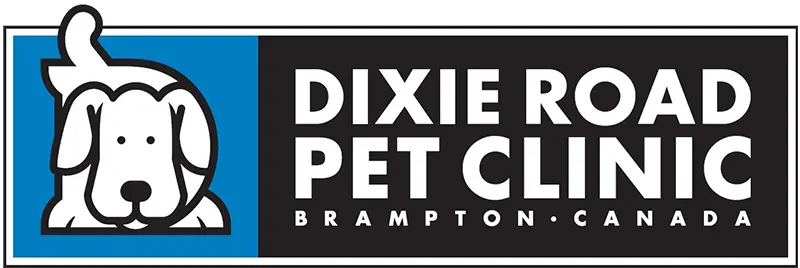Fall Dog Safety Tips

Fall may be one of Fido’s favorite seasons. He can run and play outside without becoming too hot or too cold, and he enjoys the crisp air and gorgeous weather just as much as everyone else. Of course, each season has its own set of advantages and disadvantages for our animal friends, and fall is no exception. Read on as a local Brampton, ON veterinarian discusses some critical safety risks that pet owners should be aware of.
Take Care Of Fido’s Furry Feet
As the weather grows colder, you’ll need to pay particular attention to those adorable toe beans. Cold, dry air can cause chafing and irritation in Fido’s paw pads. To protect your dog’s paw pads, apply paw balm or wax. If you’re starting to stock up on deicing supplies, seek pet-friendly options.
Keep Him Warm
If Fido has short, sleek fur, he’ll most likely need a jacket on frigid evenings. Make sure everything is clean, fits properly, and is not overly tight, heated, loose, or constraining.
Be Aware Of Seasonal Canine Illness
If you’ve never heard of seasonal canine disease, don’t be surprised; it’s not well known, and we still have a lot to learn about it. What do we know? It develops quickly and is most commonly seen in dogs who have been walking in the woods. Symptoms typically appear between one and three days after exposure, and can become severe rapidly. These include vomiting, diarrhea, lethargy, fever, and tremors.
Of course, these things can be connected with a wide range of diseases. If you notice any of these red flags—or any other signs of sickness in your pet—contact your Brampton, ON veterinarian immediately.
Be Cautious Of Toxins
At this time of year, many people will be applying lawn and garden care products. This is also a popular time to apply pesticides and rodenticides, since many rodents will try to come inside when the weather cools. These products are not only dangerous to their intended victims, but are extremely toxic to pets and can be lethal. If you use insecticides or rodenticides, take steps to keep your pet from coming into touch with them. Also, keep in mind that these substances can poison the animals that hunt vermin. A mouse that has eaten bait can poison owls and other raptors, as well as cats and many other small animals. Opt for pet-friendly options as much as you can.
Look For Antifreeze Spills
Rodenticides are not the only thing to be concerned about. Antifreeze is another issue. Many brands have a taste that pets enjoy. While some companies have switched to less risky items, this is not universal. Propylene glycol-based coolants are a safer option, but they are not completely safe. Remember that pets can swallow toxins by walking through a spill and licking their paws. Clean up any spills immediately, and place sand or cat litter in damp areas.
Decorate Carefully
Fido is both curious and playful. These are wonderful traits, although they might backfire at times. Dogs don’t know what is and isn’t safe for them, so they’ll sometimes test items by eating them. That can be extremely dangerous!
When decorating for Halloween, Thanksgiving, or the winter holidays, keep anything small or sharp out of paws’ reach. This includes little items such as beads, buttons, craft kit bits, coins, jewelry, and more. Anything ropy or stringy is also unsafe. This includes paper streamers, garlands, tinsel, and the fake spiderweb you strung on your doorstep.
Be Very Careful With Fires
Candles, fire pits, and fire places are prominent in many images of autumn scenes and settings. Just be extremely careful here: pets and fire do not mix! Keep candles in sturdy holders or sconces, and keep them out of reach of curious pets. With fire pits and fire places, take steps to ensure that your pet does not come too close.
Be Aware Of Unsafe Plants
There are several seasonal plants and flowers to be cautious of. Here are a few:
Red Maples: Maples are beautiful, but their leaves are deadly to dogs. You don’t have to worry about your pet stepping on them, but don’t allow him to eat them.
Ginko Plant: Ginkgo trees (Ginkgo biloba) are also toxic. There is one caveat: only the seed from the female tree is poisonous. (They also stink.) Symptoms of ingestion include vomiting and seizures.
Conkers: Conkers, or horse chestnuts, are one hazard. They include toxic alkaloid saponins and glucosides, which are harmful to dogs.
Chrysanthemums: Although chrysanthemums are rarely fatal, they can cause vomiting, diarrhea, hypersalivation, incoordination, and dermatitis.
Ask your Brampton, ON vet for more information on safe and unsafe plants.
Prepare for Night Walks
As winter approaches, the sun will set sooner and earlier each day. If your pet stays at home while you go to work, switch on a light and radio to make him more comfortable. When walking Fido, use a bright or reflective leash or harness, and dress in ways that make you clearly visible. Good footwear is also essential, especially as the weather becomes icy.
Book An Appointment At Our Brampton, ON Pet Hospital
Have you got any questions about your dog’s health or care? Contact your Brampton, ON animal clinic today!
